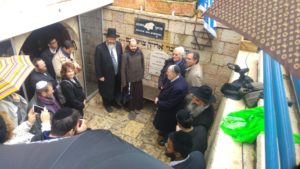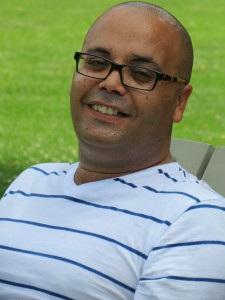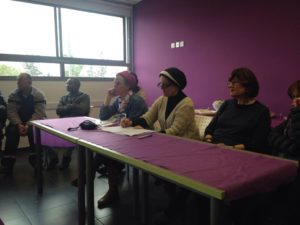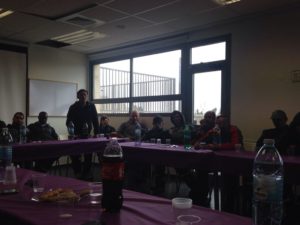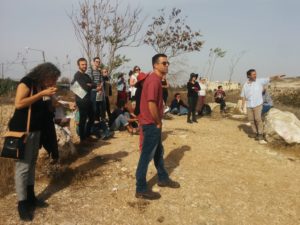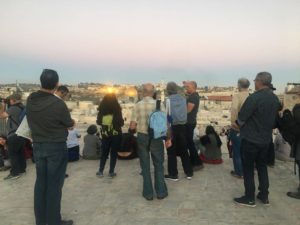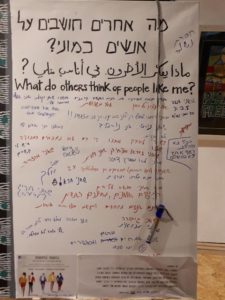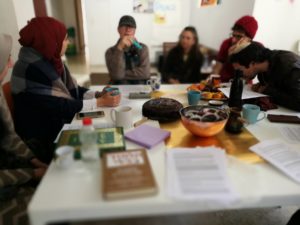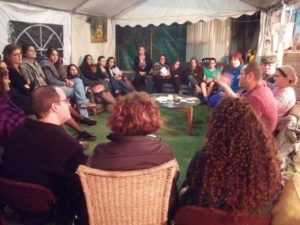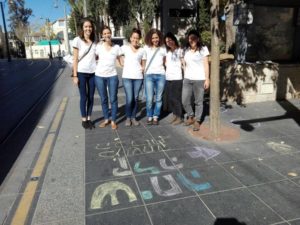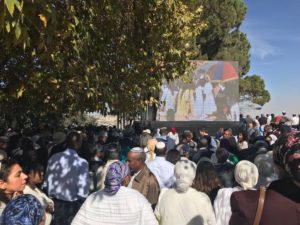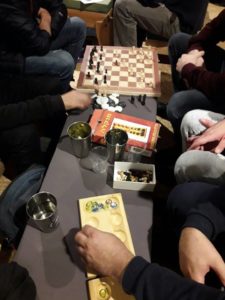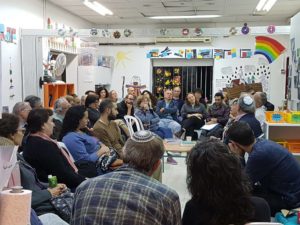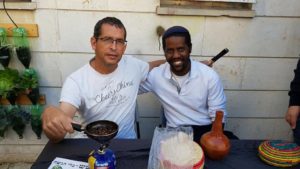Mount Zion – Remembering Oskar Schindler and the Holocaust – Together
There are those who say that the conflicts between the different religions on Mount Zion go back 500 years, when the Muslims expelled the Christians from the Room of the Last Supper, which is in the David’s Tomb complex. And the Christians blamed the Jews for this occurrence. There are those who say that the inter-religious conflict began 1,000, 1,500, or even 2,000 years ago, depending on which event you count as the beginning.
What’s for sure is that up until a few years ago, the tension could be felt among the different organizations on Mount Zion on a daily basis, and this tension was known to erupt and develop into difficult, even international, incidents.
Over the past two years, thanks to the Window to Mount Zion program (see it’s website here, and specifically the one about the graveyards of Mount Zion), the atmosphere has been different. Drastically different. Window to Mount Zion has enabled the residents of Mount Zion, despite their different religions and different approaches to religion, to respect one another and to help one another, both on a day-to-day basis (we call it the ‘cup of sugar’ relationship), and on broader issues, such as cooperating to clean up a local Muslim cemetery, and to release a joint letter of condemnation when that cemetery was desecrated, as well as working together to ensure that the cemetery was cleaned and better prepared to prevent further incidents.
Despite our new neighborly relations, we were still pleasantly surprised when the Diaspora Yeshiva called and invited us to an event commemorating International Holocaust Remembrance Day (January 27), which was to honor Oskar Schindler, who is buried in the Catholic cemetery on Mount Zion. They asked us to invite representatives from the different Christian orders on Mount Zion. The Franciscan and Benedictine monks were touched to be invited, and we were honored to be a part of a moving ceremony. The ceremony began at Schindler’s grave and ended at the Holocaust Memorial, where a plaque in honor of Schindler was unveiled. Both Rabbis and Monks lit remembrance candles.
Here’s the link to the ynet article, (in Hebrew) which includes a short video about the ceremony.
And here’s the Facebook post in Hebrew:
Congratulations to Window to Mount Zion for bringing about this revolution in inter-religious relations on Mount Zion!

